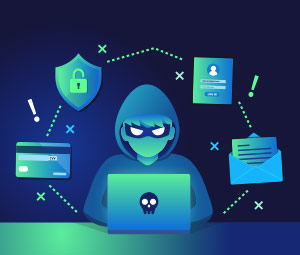If you’re like most people, you probably don’t give your home WiFi router another thought after checking to make sure it has Internet connection. But did you know that your home WiFi router is a crucial component to your overall security?
While a WiFi router means no more hassling with messy Ethernet cables, you could unknowingly be putting your data at risk of being intercepted if you don’t properly secure it.
Continue Reading… Is Your Router Easy to Hack? Learn How To Properly Secure Your Router
You’re hanging out in a campus coffee shop, surfing the Internet on a public WiFi network. You’re paying bills, reading email, and posting some funny photos taken in your dorm room last night.
And with each of those activities, you’re a potential target for cybercriminals, viruses, spyware, and other threats.
Continue Reading… Heading Back to School? Don’t Forget About Your PC Security Basics!
Summer is a time to get away, to relax, and just to forget about it all. But make sure you don’t let your guard down! When you go on vacation, criminals go to work. Take the right precautions or your trip could cost you much more than the price of airfare and hotel stay!
Continue Reading… Vacationing This Summer? Don’t Get Burned By Criminals & Online Threats!
Online privacy is a topic getting a lot of attention these days and has become a large concern among consumers. While the obvious solution is to take steps to better protect your online privacy, a survey published in Consumer Reports found that 62% of U.S. consumers “have done nothing to protect their privacy on the Internet.” This doesn’t mean consumers don’t care about privacy. In fact, the same survey notes that 58% of online users are concerned that the National Security Agency (NSA) may be spying on them.
Continue Reading… Online Privacy: How to Minimize Your Digital Footprint

It’s early in the morning, and you’ve just made a cup of coffee. You’re checking your email when you see one from PayPal, informing you there is an issue with your account and to ‘click here’ to verify your account. The email even features the official PayPal logo.
Because it’s early and your coffee hasn’t kicked in yet, you might think the email is legitimate and click the embedded link or attachment. And you might end up sorry if you did. If you’d taken a closer look, you’d have realized it was a phishing email.
Continue Reading… 7 Ways to Spot a Phishing Scam